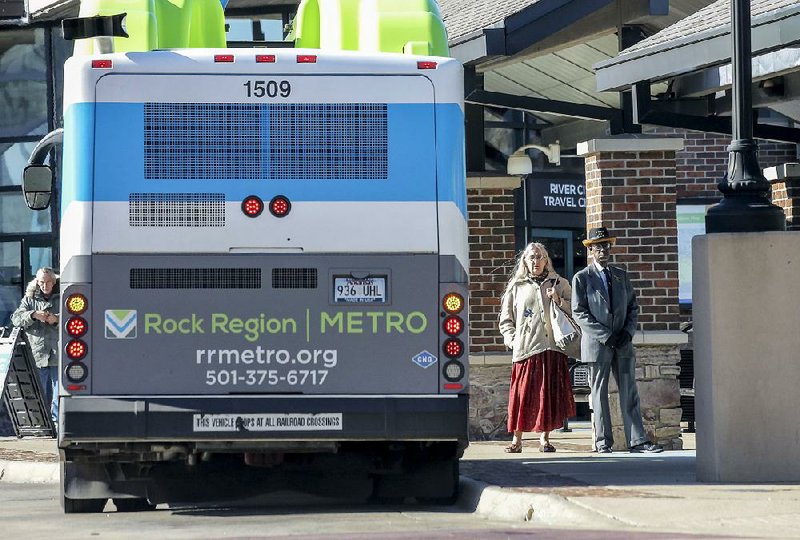Conway is on track to end its reign as the largest city in Arkansas without transit.
Rock Region Metro has developed a plan for a microtransit service for the Faulkner County seat, marking the transit agency's first foray outside Pulaski County.
Under the proposal, Rock Region would offer two full-time vehicles to circulate within a defined zone from 6 a.m. to 8 p.m. Monday through Saturday, and riders could hail those vehicles on demand from smartphones or by calling the agency's dispatch center. Response times are supposed to be no more than 30 minutes.
It is similar to what Rock Region makes available to some of its riders in Pulaski County. Microtransit zones are designed to offer transit in areas that don't have the demand that would require a full-size bus.
The transit agency's board of directors approved the proposal at its monthly meeting Tuesday. The proposal also must meet the approval of the Conway City Council, which is scheduled to take it up next week.
Conway, a city of almost 68,000 located about 35 miles north of Little Rock, has been working with Rock Region for several years to develop a transit option.
"We are striving to lessen traffic and parking congestion, improve air quality and lead to a reduction in fuel consumption," said Felicia Rogers, a top aide to Mayor Bart Castleberry.
The two entities thought they had reached a deal in 2018 to offer a van-pool service. It was postponed as a result of the coronavirus pandemic but remains on the table, according to transit officials.
But Conway likes the microtransit approach, which has been dubbed Metro Connect Conway.
"Most people, when they think of transit, they think of a big bus," said Bobby Kelly, the city spokesman. "It can be more than that. It isn't going to solve everyone's problems, but we think it's a worthwhile endeavor."
While Rock Region's fleet of regular buses remains the backbone of the transit system, what defines transit is changing.
"Ultimately, we have an array of transit service options, and as employers and riders become familiar with each, we expect our services to evolve in relation to the different transit demands within our area," said Becca Green, the spokeswoman for Rock Region.
Rogers has been the point person on the Conway project, which she sees as the most affordable way to introduce transit to the city.
"This is Conway's attempt of bringing a form of transit to our citizens," she said. "The microtransit on-demand transportation services will provide point-to-point shared rides for residents, guests and commuters by providing on-demand rides for work, shopping, recreation, restaurants and for various appointments."
The city is using Federal Transit Administration funds for which it is eligible. The proposed three-year agreement calls for the city to pay Rock Region $625,000 for each year. Three one-year options will be available.
Rock Region will supply the software, hardware, vehicles, fuel, maintenance, operators and supervision for the project, according to Blake Mhoon, the agency's procurement manager.
